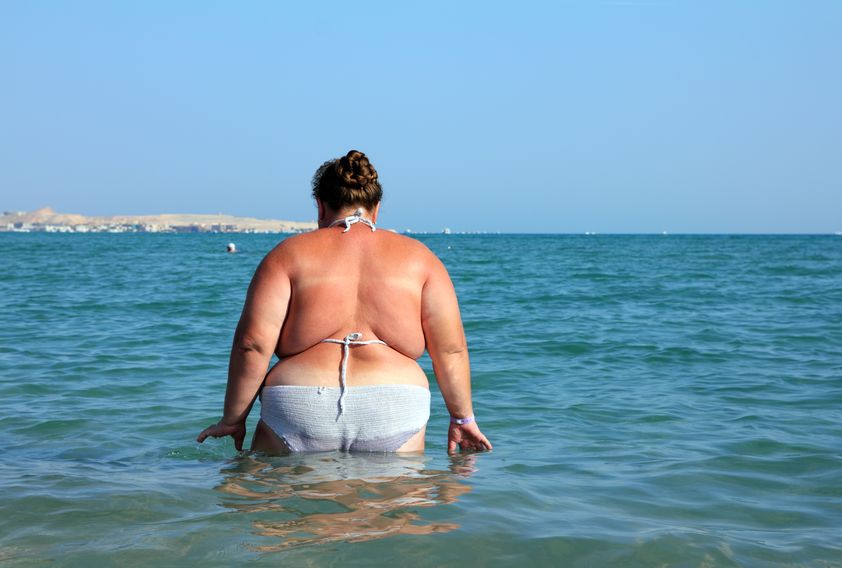Obesity, the huge Western crisis now threatening the health of people in Seychelles

By John Lablache
Though among the smallest islands in the world, a thousand miles from anywhere, Seychelles' health pattern is more similar to those of large Western countries.
Over the past couple of decades, obesity has become a major concern and is closely linked to the three main death causes; diabetes, cardio vascular diseases and cancer.
Obesity is largely blamed on improper eating habits of Seychellois, especially the younger generation who prefer eating fast foods, notably chips or fries, burgers, and tinned food, rather than fish and vegetables as was the case for their forefathers.
The prevalence of diabetes and obesity were assessed from a sample of 1078 individuals living on Mahe in 2007.
It was five-fold higher in women – 21 per cent , compared to men – 4.2 per cent.
In women, it increased from 8.9 per cent in the age category 25-34 to 29.4 per cent in the 35-44 age range before levelling thereafter.
Prevalence of diabetes increased markedly with age: from .0.8per cent at age 25-34 to 8.8 per cent and 13.4 per cent at age 55-64 in men and women respectively.
Male life expectancy, according to the Seychelles Health Ministry, is pegged at 68 years for women, while for women , it stands at 78 years.
About 20 per cent of mortality in Seychelles is caused by cancer and research has shown that many types are more common in people who are overweight or obese.
These include cancer of the breast (especially after menopause) cervix, oesophageal (food pipe), pancreatic, kidney, gall bladder, colon and rectum. The list includes two of the commonest types of cancer: breast and bowel and three of the hardest to treat : pancreatic, oesophagal and gall bladder.
Being overweight can increase the risk of cancer because fat tissues in the body produce hormones which are growth factors that can affect the way our cells work.
When people are overweight and obese, there is much more insulin present in the body. It is not clear how this can lead to cancer, although high insulin levels are a common factor in many cancers.
The alarming situation had prompted Miss Seychelles 2014 to launch a campaign to curb obesity, especially among children.
Camila Estico said: “I will sensitise people on obesity problems and the risks that the condition poses to their health, by engaging in education campaigns to minimize tendencies of unhealthy living.”
Camila, who keeps a healthy diet regime and eats local products, has put time and effort into the issue and sought support from everyone during organised visits to private business and state institutions.
Dr Danny Louange, the deputy CEO of Seychelles Health Agency, also blames bad diet for the islands' worsening health problems.
In 1994, there were just four patients suffering from kidney failure and requiring chemo- dialysis. In 2014, there are more than 100, with 17 new patients this year.
He said: “There are unhealthy eating habits, such as abuse of carbohydrates and sweet foods, which cause the sugar level to go up. There is also a tendency to consume more fast foods with a high content of preservatives. And for many people, there is also abuse of alcohol, which affects vital organs.”
Orthopaedics also blame obesity for spinal problems, including lower back pains. In recent years, the number of Seychellois suffering from bad lower backs and requiring surgery has increased significantly.
“It has long been known that a rise in body weight results in a geometric increase in the pressure on the spine. This causes a wearing away of the spinal discs' outer fibres, increasing the risk of injury,” said a local orthopaedic expert.
He adds that adults aren't the only ones at risk, either. Obesity also affects the health of children's joints. So, encouraging children to be active and achieve or maintain an appropriate body weight for their age and height may go a long way toward helping them to avoid such ailments as arthritis later in life.
According to Dr Louange , the good news is that small changes to lifestyle can lead to a reduction in bodyweight. He suggested sticking to a more balanced diet, free of carbohydrates and fats and going for regular exercise.
“The day-to-day choices we make about our lifestyle have the greatest effect on our weight and health,” he said.














